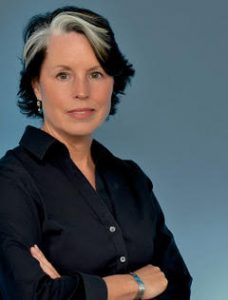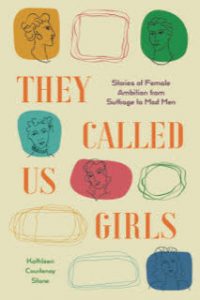A Random Encounter Leads to Newsletter Happiness
 A year into the pandemic, baby boomers (my age group) became eligible to get the vaccine in Massachusetts. Early on the morning of that first day, I joined hundreds of thousands of others trying to get on the state’s vaccine website. Ordinarily, websites are no problem for me. All day long, I navigate, sign in, purchase, read and comment, but not this day. The site simply couldn’t handle the traffic, nor could the parallel private sites. By mid-morning, all sites had crashed and no one knew when they would be back.
A year into the pandemic, baby boomers (my age group) became eligible to get the vaccine in Massachusetts. Early on the morning of that first day, I joined hundreds of thousands of others trying to get on the state’s vaccine website. Ordinarily, websites are no problem for me. All day long, I navigate, sign in, purchase, read and comment, but not this day. The site simply couldn’t handle the traffic, nor could the parallel private sites. By mid-morning, all sites had crashed and no one knew when they would be back.
The next day, a friend offered an alternative – a phone number someone else had used successfully. Within minutes I was talking to Chrissy who was booking appointments for the local hospital. She asked for basic information like name and address. Then she asked if I was retired. Not really, I said. A pause ensued. My answer didn’t fit into either the yes or no box she was faced with, and she asked me to clarify. I am retired from the practice of law, I told her, but I’m writing a book and don’t really think of myself as retired. What’s your book about, she wanted to know. When I explained, she said, “I’d love to read your book.”
Writing a book is a long, solitary process. At least it was for me. I began working on what I called a “project” at least ten years ago, before I knew it would grow into a book. I started because I was curious about mid-century women who had professional careers, when most Americans believed women belonged at home. I wanted to know where they found their ambition and how they honed it into long, productive careers.
My curiosity led me to interview one woman, then another, and another. After a while, it began to seem that this undefined, unnamed project could turn into something. Something like a book. I had never written a book and really had no idea how to go about it, but took a few classes at our local writing center and attended the annual AWP conference when it was held in Boston. I left the conference excited about discussions which had tapped into a vein I didn’t know I had, and I wanted to study writing.
I already had a JD degree and had worked as a lawyer for more than twenty years, but when I began an MFA program, I scaled back my law practice. The items on my daily to-do list evolved from “file brief” and “call court clerk” to “write analysis of Pride and Prejudice.”
My ultimate goal was to transform the interviews I had done into prose that people would want to read. I didn’t think much about who those people might be, but when I did, I imagined an anonymous, undifferentiated sea of readers. Mostly I plodded on with more interviews, chapter drafts, revisions, workshops and rewriting.
When the pandemic struck, I was lucky. The interviews and most of my research into historical context was complete. When Cynren Press accepted my book proposal, I was thrilled. Not only did I have a publisher, but I had reason to be productive throughout a summer and fall of social isolation. I filled my calendar with deadlines: complete draft, send to editor, revise, submit final manuscript to publisher. New Year’s Eve was the final target.
Every day of the summer and fall, I focused on the number of pages I needed to write or revise in order to meet my goal. I existed in a silo, not thinking much beyond its walls. I did not and could not imagine a real reader with my book in her hands, not until I talked to Chrissy.
Family and friends had read drafts and said kind words, but Chrissy was different. She had no reason to encourage me, and seemed genuinely excited. “I love women’s history,” she said. “When we’re finished making the appointment, I’ll give you my email so you can send me more information.”
After we finished our business, I learned she was an out-of-work bartender, new to the hospital job. She was working from home, asking one baby boomer after another for name and address and whether they were retired. She didn’t know how long this job would last, but she was ready for a steady job with benefits, even when the bars reopened. We ended with her giving me an email address so I could send her my newsletter.
After I sent out the next issue, I heard from her. “You remembered,” she wrote, and added two pink hearts. Of course I remembered. She was the one who had pulled me out of the silo and let me know the world is full of potential readers with whom I could connect in unpredictable ways.
Industry experts say a newsletter should be part of an author’s marketing plan. There is good reason for that, but the emotional boost that comes from knowing that a stranger cares goes far beyond any marketing advantage. Since talking to Chrissy, I’ve heard from other readers who have read my newsletter with emails about nineteenth century women’s fashion, Louis Kahn’s architecture, the structure of viruses, and details about their mothers and grandmothers who aspired to lives like those I write about. Whether or not I hear from them, I know real people are out there and they are in conversation with me, as I am with them. I do have one regret, thought: I forgot to ask Chrissy what box she checked for my employment status.
—
Kathleen’s book, They Called Us Girls, a collective biography of women with unconventional professional ambitions, will be out from Cynren Press in March 2022. You can pre-order the book here. https://www.cynren.com/catalog/they-called-us-girls.
While you wait, read Kathleen’s newsletter (and get the book’s introduction) by signing up here. https://www.kathleencstone.com.
Twitter https://twitter.com/KathleenCStone
LinkedIn https://www.linkedin.com/in/kathleen-c-stone-8654847/detail/recent-activity/
Instagram https://www.instagram.com/kathleencstone/
THEY CALLED US GIRLS: STORIES OF FEMALE AMBITION FROM SUFFRAGE TO MAD MEN
 In mid-twentieth-century America, women faced a paradox. Thanks to their efforts, World War II production had been robust, and in the peace that followed, more women worked outside the home than ever before, even dominating some professions. Yet the culture, from politicians to corporations to television shows, portrayed the ideal woman as a housewife. Many women happily assumed that role, but a small segment bucked the tide—women who wanted to use their talents differently, in jobs that had always been reserved for men.
In mid-twentieth-century America, women faced a paradox. Thanks to their efforts, World War II production had been robust, and in the peace that followed, more women worked outside the home than ever before, even dominating some professions. Yet the culture, from politicians to corporations to television shows, portrayed the ideal woman as a housewife. Many women happily assumed that role, but a small segment bucked the tide—women who wanted to use their talents differently, in jobs that had always been reserved for men.
In They Called Us Girls: Stories of Female Ambition from Suffrage to Mad Men, author Kathleen Courtenay Stone meets seven of these unconventional women. In insightful, personalized portraits that span a half-century, Kathleen weaves stories of female ambition, uncovering the families, teachers, mentors, and historical events that led to unexpected paths. What inspired these women, and what can they teach women and girls today?
Category: How To and Tips























